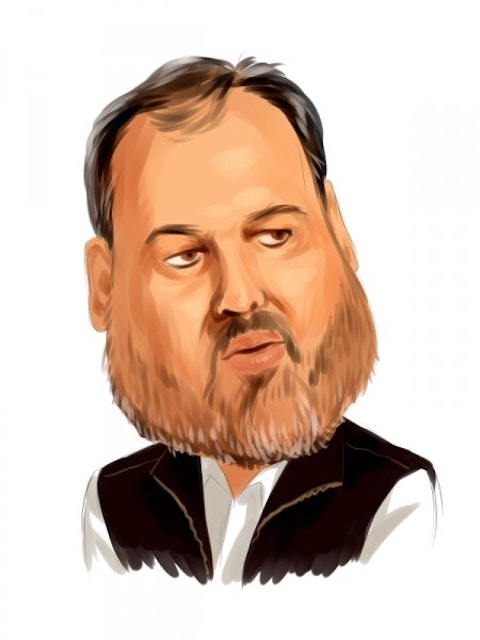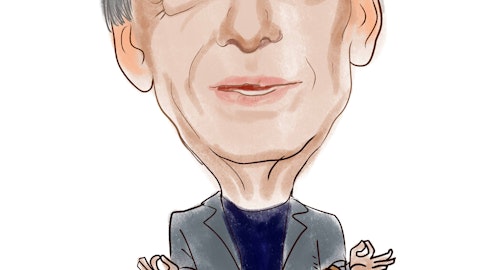Passport Capital’s John Burbank has been bullish about commodities for a very long time. He has been investing in mining companies in Canada, Australia, and other countries. At the end of 2010, the biggest position in his 13F portfolio was a $416 Million PUT option on SPDR Gold Trust (GLD). He was most likely hedging and protecting his gold and commodities investments that he isn’t required to disclose to the public.

He was on Bloomberg Television this morning talking about the decline in gold prices. “We have hedged ourselves across all commodities, we’re invested in many different commodity equities, including energy, base materials, gold, and agriculture. We feel the repositioning of investors, looking at the end of QE2, is responsible for risk coming off. Gold is one of those things that investors bought to not be devalued against the dollar. The dollar is getting stronger against the euro. We think this is a temporary correction. Gold also typically bottoms seasonally in August. I can’t imagine it not being strong until then,” Burbank said.
He thinks commodities are more likely to decline because of the end of QE2. “I think they sell off now into it and we bottom again in commodities this summer. I think the better bet is to be cautious and just have some perspective about where things traded when QE2 started. Gold was $1350. Oil was $85. Silver was $25. I am not predicting it will go back to these levels, but the better bet, unless there is some other kind of liquidity coming from governments, is that they trend back those levels,” he said.
Despite his near-term concerns about commodities, Burbank is bullish about the commodities in the long-term. “Hedge funds need to make money on a near-term basis, just like a mutual funds need to try keep up with their benchmarks. The Fed, by doing what it did with quantitative easing, forced a repositioning almost unwillingly by many investors to make inflationary bets, as well as to avoid being devalued as the dollar fell and fell and fell. So now you have a reversion to that trade and then things settle out. Then we will see what is strong, what is weak. I think that long-term it is clear sovereign yields will be weak and commodities will be strong. It just a question of when we get there and when we price that in,” Burbank said.
He is a long-term gold bull. He thinks Chinese consumer demand for gold will exceed Indians’ demand for gold and this will support gold prices. However, the main reason he likes gold is Fed’s willingness to print money and U.S. government’s reluctance to solve the budget deficit problem. Burbank invests directly in physical gold or buys small gold miners. “Our preference is in two areas. Physical gold and smaller cap common junior minors. We two geologists based in Vancouver, and we think we have a good edge on which explorers are the right ones to own. We are buying, even now, and will continue to be to accumulate stakes there. Barrick and Newmont have come off at least 10% in the past couple of weeks. I think the gold stocks are discounting a further fall in gold and we don’t know if it was going to happen. If there was another government intervention that provided a lot of liquidity in the world, then we would be quicker to come back in,” Burbank said.
You can watch the entire interview at Bloomberg Television’s Youtube channel.




